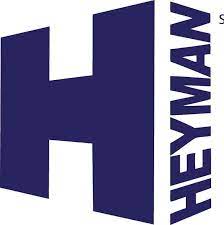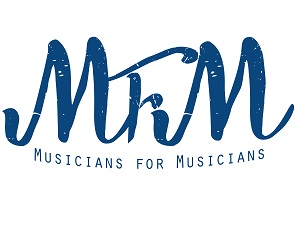A Conversation with Attorney Barry Heyman, Esq. and Roger Blanc Discussing Ways A Musician’s Musical Work Product Can Produce Revenue from Home
Text by Dawoud Kringle
 On Thursday, September 30th, 2021, MFM presented its 6th webinar. The guest presenter was attorney Barry Heyman.
On Thursday, September 30th, 2021, MFM presented its 6th webinar. The guest presenter was attorney Barry Heyman.
In light of the general inability of musicians to perform live in person during the pandemic, musicians have been seriously affected psychologically and economically. Even as we try to move forward into a new normal, uncertainty remains where live musical performance is concerned, Mr. Heyman’s presentation centered around navigating this and setting up legal protection, and multiple income streams.
Barry Heyman Esq. was good enough to join us via Zoom conference to explore avenues of musical revenue generation that can be undertaken in the peculiar circumstances of the COVID pandemic. An emphasis is placed on the value of music protected and compensated via copyright law. While the ability to generate income doing work of this kind depends on a variety of musical and extra-musical factors, there exists more options available than many are aware of.
Barry Heyman has been practicing entertainment, intellectual property (copyrights and trademarks), and new media law for 20 years. In 2004, Barry founded Heyman Law where he is the principal attorney. In his law practice, Barry advises individuals and businesses on a wide variety of legal matters including drafting and negotiating contracts, forming corporate entities, and handling copyright, trademark, and other intellectual property matters. In addition, he provides strategic and commercial advice on various aspects of the music and media industries, including current technological changes and alternative copyright distribution and exploitation models.
MFM Board member Roger Blanc moderated the meeting and began with a brief introduction. Then he introduced Heyman.
Heyman began with a discussion on his background, and how he helps musicians and businesses navigate their legal and practical aspects of copyrights. The emphasis here is in the unique difficulties of the pandemic, and the “work from home” process.
He mentioned how musicians are, in addition to being creative artists, entrepreneurs, and how the circumstances of the present day music scene offer both difficulty and opportunity. In addition, even if things are returning to normal, the ”new normal” will inevitably include factors that were put into place during the pandemic, and we will never go back to how things were before. Earning money from our work will require knowledge and ingenuity. Ironically, this is indirectly connected to copyrights. But copyright protection is vital. There are a variety of ways one can earn money from compositions and sound recordings.
The fact that composition and recording are two different sides to the copyright process was explained. These generate different types of income streams.
At this point, Heyman asked the same question he asks his clients: is everything (i.e. your compositions) registered with the copyright office? Is it registered with your Performing Rights Organization (PRO) and with Sound Exchange?
The next thing to deal with is a proper and fair agreement with everyone you’re working with (i.e. if you’re sharing copyrights and royalties with other band members). There’s also the possibility of registering past works, and getting past royalties owed on the works.
He mentioned how PROs have a process in place wherein the songwriter can register his own performances of his own music, and be paid for it. BMI Live is one such option.
The existence of the Mechanical Licensing Collective (MLC) was also brought to the participant’s attention. The MLC can collect royalties on DSPs such as Spotify and other royalty streams.
Some back and forth / questions and answers inevitably arose. Roger Blanc, Jimmy Owens, Richard Scott, and other participants brought up valid questions regarding payments.
Many of the other subjects discussed are, unfortunately, too detailed for this short report to go into. These include signing up with SESAC to collect international royalties, live performance streaming, revenues from fan donations / charging for live stream, merchandise sales, payments for public domain covers, songtrust, patreon strategies, collecting royalties PRO royalties for live streamed performances, licensing your songs to those who would use your music for other projects (films, apps, video games, etc.), creating new arrangements of public domain works, GRAM registration with the US Copyright Office, and other possible sources of income from music,
The interesting thing is that much of this came as a result of compensating for the problems and limitations imposed by the pandemic. Heyman’s presentation proved that this kind of information is vital to the professional musician.

